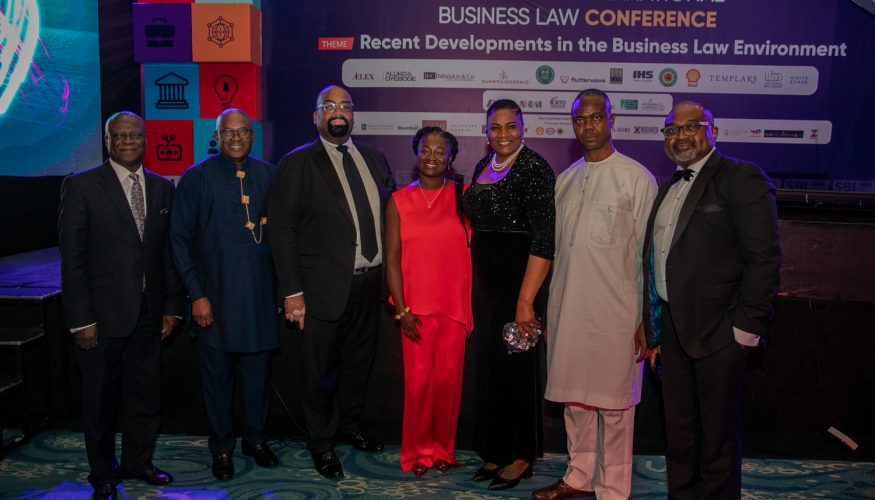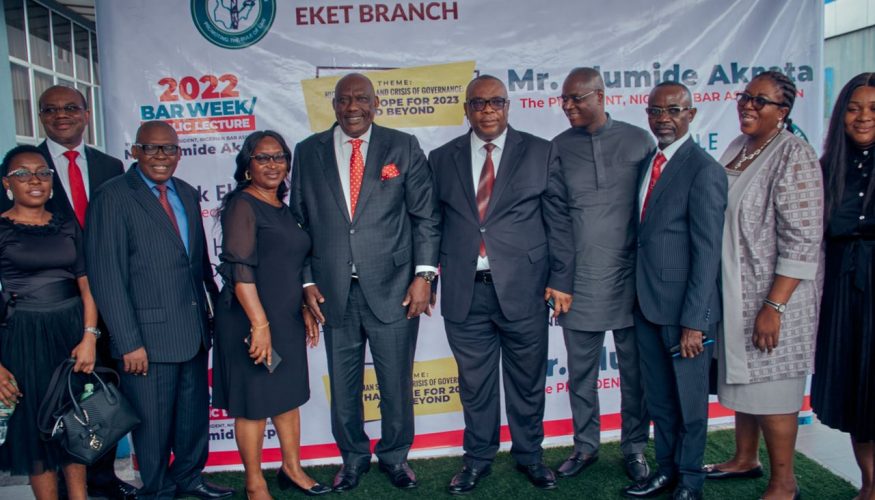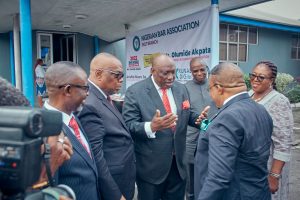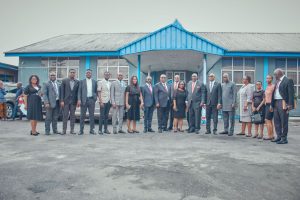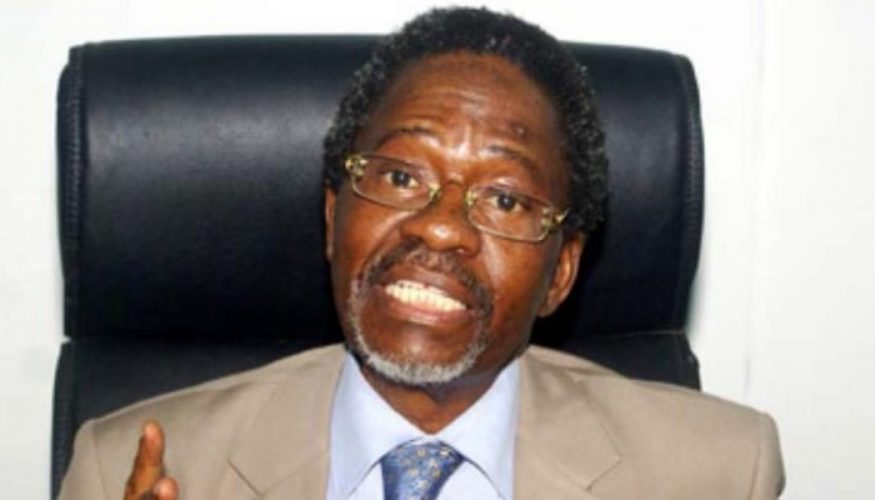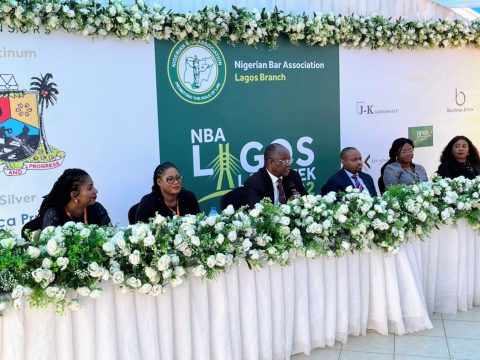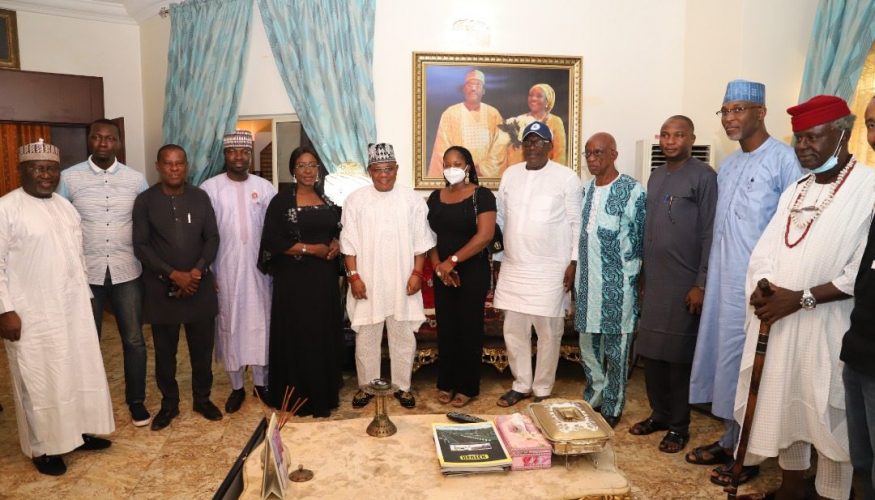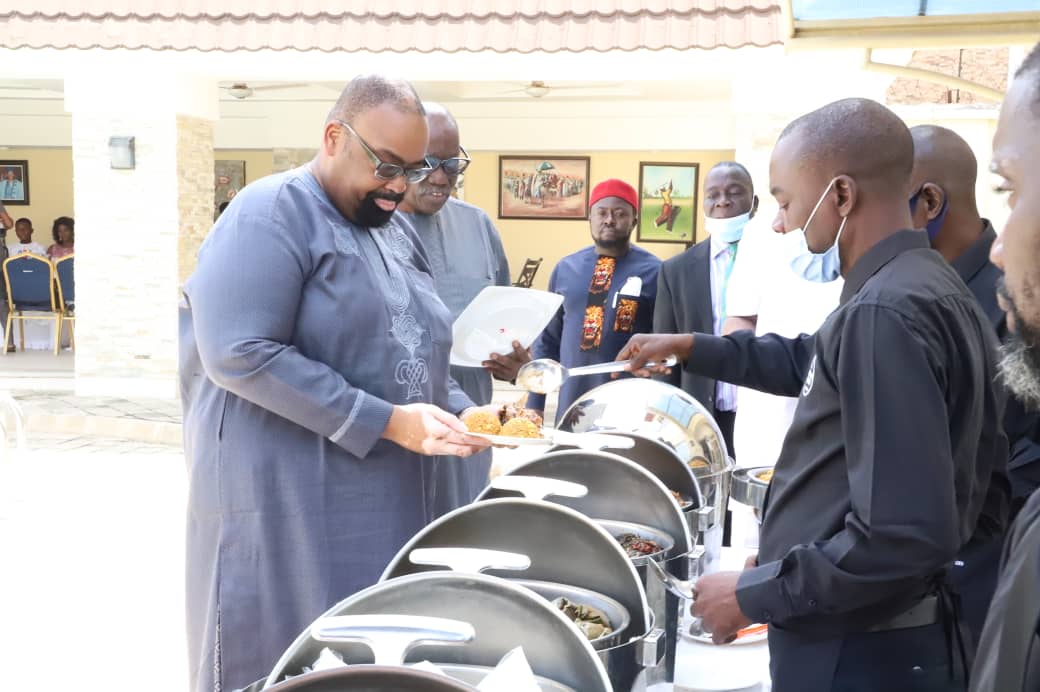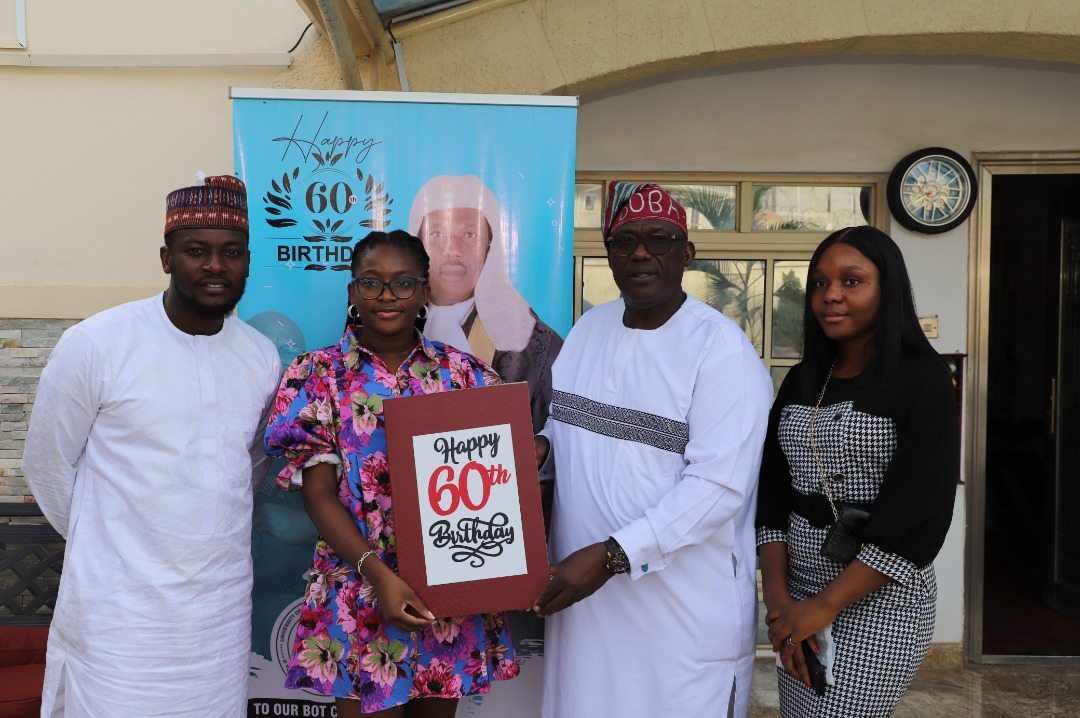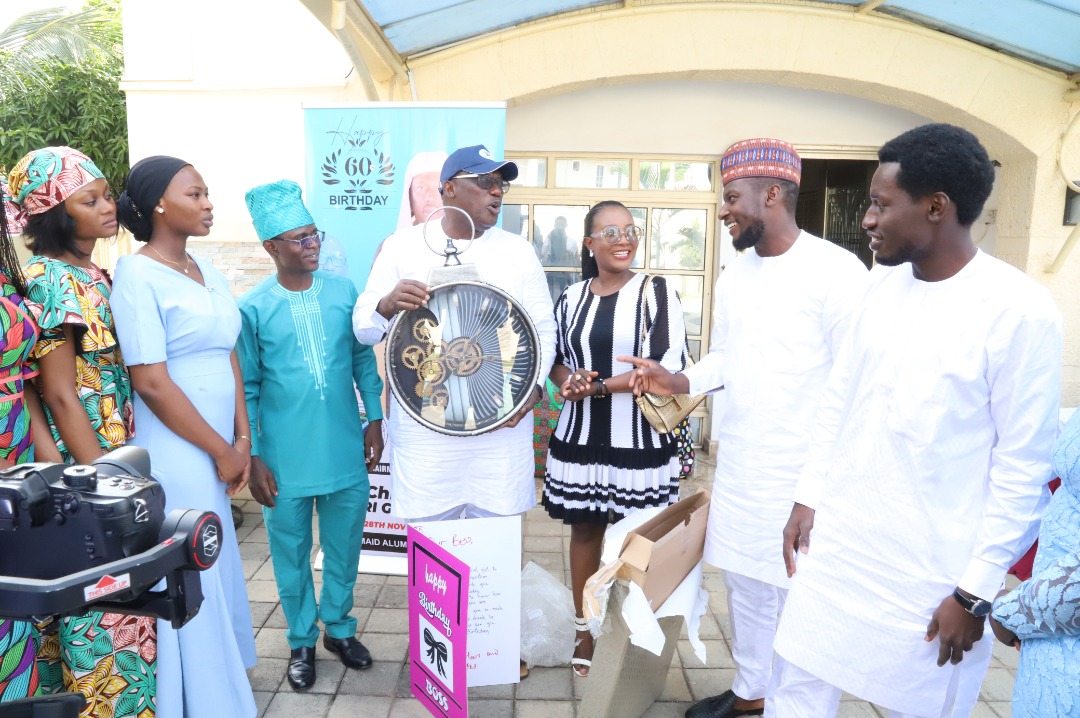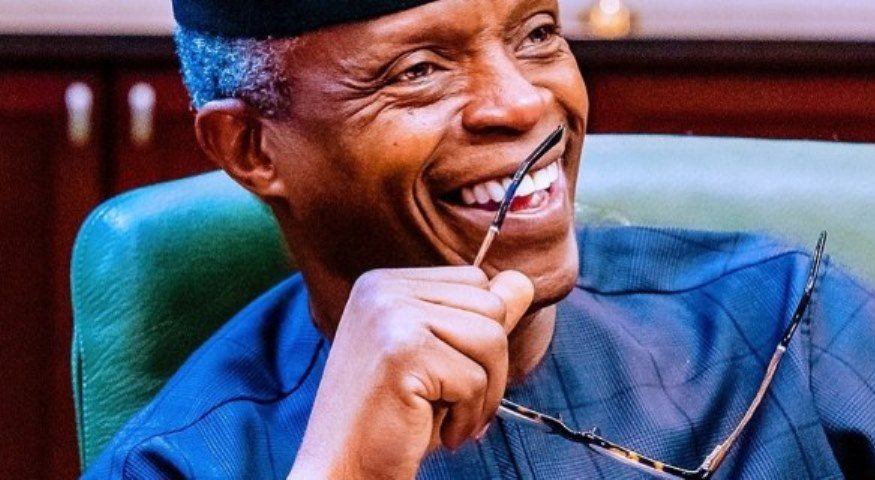SBL CONFAB: ‘NEW TRENDS FOR ENABLING AFRICA’S STARTUPS,’ BY KEYNOTE SPEAKER
By Kosi Yankey Ayeh, Chief Executive Officer, Ghana Enterprise Agency
Introduction
I stand on all existing protocols
Distinguished Council Members of the Nigerian Bar Association Section on Business Law (NBA-SBL)
Ladies and Gentlemen
Yes there is fire on the mountain! But we are not going to run…,
The theme is so apt… its beyond us. Its about the future of this nation, the youth and your country.
1. Good evening.
2. Before I proceed, I want to make a few promises if you will permit me:
a. I will not crack any boring jokes, a
b. I will not mention anything about jollof rice
c. I wont bore you with many numbers, after all you are lawyers not statisticians
d. SO KINDLY HOLD ME TO MY PROMISES
3. First of all let me thank you all for the warm welcome. I must say from the airport to the hotel, to the conference hosts, there has not been a shortage of smiles on the faces of the people.
4. Also I would like to extend my appreciation to the chair, the one and only Ayuli, a good friend of mine.
5. I remember last week I asked Ayuli what he wanted me to say, he said tell them stories. ? true stories. So please bear with me cause that’s all I will be doing tonight.
Distinguished Ladies and Gentlemen
6. It’s an honour to be with you for the 16th Annual International Business Law Conference of the NBA-SBL under the Theme: “Recent Developments in the Business Law Environment”, and I am particularly delighted to be speaking on the topic: New Trends for enabling business start-ups in Africa.
7. Indeed, being in Nigeria is like being at home. Ghana and Nigeria interestingly do not have a common border but surprisingly, we have a lot of things in common. Yo state the obvious
i. We are both commonwealth countries and English is our official language
ii. all the countries sharing our borders are mainly Francophone.
iii. Our legal systems may differ a little in terms of composition, but it is fair to say the countries’ legal systems are quite similar and comprises of the English law, the common law and the customary law.
iv. Throughout my lifetime, it’s been evident that Ghana and Nigeria are two countries very comfortable with each other. Although we remain distinct in many ways, people travelling between our countries can testify that there is a shared warmth, admiration, welcome and ease of communication that makes our people feel instantly at home with each other.
v. In 2021, for instance, four major FDI projects across Ghana were of Nigerian origin.
vi. More recently, Nigeria also graciously supported Ghana’s Sports industry by granting us a safe passage to the 2022 FIFA World Cup in Qatar. I think I speak on behalf of all Ghanaian football fans when I say we remain grateful for your Super-Eagles.
8. I am very sure the similarities cut across the entire continent and we relate well with issues pertaining to the business environment.
9. For todays conference I am particularly happy for my participation in this conference for three main reasons:
10. First, the crucial place of law in underpinning innovation and entrepreneurial activities. This is because Business law helps to maintain order, establish a set of generally accepted standards, resolve disputes, and protect liberties as well as rights when it comes to business as well as its relation to its customers, government authorities, and other businesses. This also includes protection of intellectual property rights, which is critical in fostering innovation and investment.
11. Secondly, because the institution I lead, the Ghana Enterprises Agency has a huge responsibility to create jobs for the Teaming youth in Ghana and we’ve made great strides in the past few years although a lot still remains to be done.
12. And thirdly, this conference has come at a time when the Government of Ghana and other African countries have placed emphasis on building an entrepreneurial nation to spark start ups.
13. So indeed this conference and its theme is timely if we hope to spark the change we want to see.And Abuja is the place.
CAST MIND BACK TO WHEN CONFERENCE STARTED
14. When I cast my mind back to when you started this conference I was in my 20s, and my dream then was to continue the career I started on wall street as a banker.
15. Africa and Ghana was not on my mind.
16. A few months later, I visited Ghana and my mind was changed! Africa was on a growth trajectory and I craved to come back and make a change. I am not sure what my parents thought but I did not stop to ask them.
Now let me delve deeper into my story.
THE STORY; MY STORY:
17. TORONTO TO GUELPH: Fast forward 6 years later, which was 10 years ago, I was sitting in a bus with a friend from Toronto to Guelph in Canada when I woke my sleeping friend up frantically after I had what I believe was an epiphany. “I have an idea I told her?” I’m going to raise US$ 500 million as a fund to the youth of Africa and grow businesses out of slums and ashes.” She responded: “Great wake me up when you figure out how to raise the funds.” It was at that point that I knew the challenge was on. At that time I was in Canada to design a multi- million dollar project for the youth in cocoa and the funder had accepted the proposal and as we worked on the next phase of the project, I realized I was hungry for more, and that was the US$500 million. That was why I had moved back to Ghana, Africa.
18. MASTERCARD FOUNDATION: The next day I went back to the office of the foundation I had pitched to and the COO walked up to me and said “I see the passion and I would like to support you.” I will work with you to raise the funds but on condition that you go back to school. Not just any school but Harvard!!!
19. DROPPING OUT OF LAW SCHOOL: Why would I want to go back to school. I asked myself, I’m doing just great. Six months after I returned to Ghana, I thought about it and made a decision. The first thing I did which you will all not be proud of me for, was that I withdrew from law school in Ghana much to the distress of my dean and applied to Harvard 24 hours to the deadline of the application.
20. I GOT INTO HARVARD!
21. HARVARD KENNEDY SCHOOL: I was very strategic with the courses I wanted to take and the three that are important to discuss are: i) the making of a politician ii) sparking social change iii) from Harvard square to oval office.
To see the change you wanted, you needed to be there to create that change. Women in politics support and finding a seat at the table.
22. POLITICAL VICTORY: A year after, my admission, one of your first Ghanaian speakers became president. On a lighter note, I’m beginning to wonder if this platform creates Ghanaian Presidents. He gave me the opportunity to serve in his administration. Although I hesitated initially I grabbed the bull by the horn and run with it.
23. TRANSFORMATION OF NBSSI TO GEA: I took up the most obscure institution the National Board for Small Scale Industries. Even the President asked if I was sure this was the institution I wanted to run. I was clear in my mind what I could do and what I wanted. For 20 years everyone wanted to change the ACT. Three different documents. What changed? The policy, the bill and the act. We need to create the law and implement it. This was to create the enabling environment. Bring the stakeholders to the table. To enable business startups in Africa and in Ghana something had to be done.
24. This was done at the right time because the world changed a few months after the transformation.
25. COVID 19 AND OTHERS
26. Ladies and Gentlemen
The coronavirus (COVID-19) outbreak has caused a health emergency around the world, which affected many businesses with some of them completely staying out of business. Trade, investment, growth, and employment are all affected, and the crisis has reversed the achievement of the UN Sustainable Development Goals. At the same time, the Russia-Ukraine war is having an outsized impact on the global supply chain, impeding the flow of goods, fueling dramatic cost increases and product shortages, and creating catastrophic food shortages around the world, leaving little room for countries to maneuver.
27. Ladies and Gentlemen – YOUTH UNEMPLOYMENT
Now this is where the matter becomes critical. Because before COVID, and before the Russian-Ukraine war, Youth unemployment had been one of the biggest challenges confronting Governments in Africa, where there is little or no economic opportunities for our teeming youth. In 2020, Africa’s population under 35 represented almost a billion people, amounting to 22.7% of the world’s total youth population, the second largest after Asia’s (58.0%), according to the Mo Ibrahim Foundation.
28. Ladies and Gentlemen – YOUTH GROWTH
29. By the year 2100, it is estimated that Africa’s youth will grow by 181.4%, to twice
Europe’s entire population and almost one half of the world’s youth will be from Africa. By the estimates, by 2030, 30 million young people are expected to enter the African labour market each year. In sub-Saharan Africa alone, while 18 million new formal jobs would be needed annually to absorb new entries into the labour market. Only 3 million are currently being created.
30. The consequences of youth unemployment in Africa are pervasive and severe: unemployment translates to poorer living conditions, fuels migration out of Africa, and contributes to conflict on the continent itself. Above all, youth unemployment constitutes a failure to capitalize on one of the continent’s greatest assets for growth: its large and growing population of talented young people. So obviously we are sitting on a time bomb ready to explode. We really require
31. Fundamentally, the challenges we face today have changed the traditional context for decision-making across our homes, businesses, and governments.
32. Are we prepared?
COVID and MSMEs
33. Perhaps the first of the many lessons that the past two years have taught us, particularly those of us in Government, is that our economic prospects hinge on shoring up our enterprise and social support systems.
34. Indeed, for us to build back better in a post-COVID landscape, it has become even more urgent that we create the means for our people to succeed economically and socially.
35. At its core, this will require a renewed emphasis on creating an enabling environment for our enterprise ecosystem (i.e. MSMEs and Startups) to flourish.
36. This focus on fostering enterprise is an informed one. Pre-pandemic, 22% of the working-age population in Africa had set up their own businesses. Here, in Nigeria, an estimated 43.31% of GDP is from MSMEs. Essentially, local businesses employ 87.9% of the labour force.
37. The same rings true in Ghana. Our MSMEs are said to contribute 70% of our GDP. For this reason, one of our most significant concerns was mitigating the impact of the pandemic on the livelihoods of the millions of our traders and local businesses.
38. I am particularly proud that through initiatives such as the Cap-Buss programme, my institution, the Ghana Enterprises Agency, supported 758,251 MSME jobs and disbursed close to $200 million in emergency relief to small businesses across Ghana.
39. Still, more must be done.
Harnessing the Continent’s Startup potential
40. Undeniably, we must leverage the talents and ingenuity of our young people. I believe that by boosting the entrepreneurial power of young people, we can:
a. Create innovative and modern businesses
b. Increase the capacity for our businesses to compete regionally and globally
c. Attract more FDI
d. Contribute significantly towards job creation and resilient economic growth, and certainly,
e. Accelerate living standards and social progress
41. Undoubtedly, supporting our startups and MSMEs will generate first-rate opportunities for impact and innovation and boost our post-pandemic recovery.
42. As I see it, our primary challenge involves creating a supportive environment for our businesses, especially our startups, to grow.
43. I singled out startups because the African startup scene is booming. And so long as governments fail to provide efficient public service delivery, startups will try and fill those gaps.
44. On the African continent today, Nigeria has become the shining light regarding startups and the development of innovative products to address challenges in the continent.
45. From fintech to educational technology, young innovators are breaking new ground. Just like you have done in the entertainment sector.
46. Unsurprisingly Nigerian startups are attracting more foreign investors. Last year alone, Nigerian tech startups were reported to have attracted over $150 billion in investor interest. Indeed, Nigeria and South Africa accounted for 28% of the total venture capital funding that came into the continent.
47. As I see it, our chance to transform the rest of Africa into a “startup superpower” hinges on making far-reaching progress along several structural trends that have previously inhibited progress.
48. The fact is that sub-Saharan Africa remains one of the lowest-performing regions according to the World Bank’s Ease of Doing Business ranking.
49. Indeed, according to the Tony Blair Institute for Global Change, an entrepreneur in a low-income economy typically spends around 50% of the country’s per-capita income to launch a company, compared with just 4.2% for an entrepreneur in a high-income economy.
50. New Trends for enabling business start-ups.
51. In that regard, concerted action must be taken to improve the business environment by introducing clear legislation promoting ease of business as well as the start up act bill.
52. I believe that with a supportive business environment, we can then lay out a roadmap toward building thriving, competitive ecosystems that generate world-changing innovations.
53. Indeed, more connected ecosystems through innovations such as cross-border payments systems should make it easier and more affordable for our startups to benefit from networks that connect founders, hubs and government bodies.
54. Such connected networks dovetail finely into the African Continental Free Trade Area, which is a gamechanger for all our MSMEs.
55. A single market of 1.3 billion consumers will allow our firms to diversify, specialize and benefit from economies of scale, making them more productive and competitive.
56. Not to mention, the AfCFTA also has the potential to lift at least 30 million people on our continent out of extreme poverty and raise the incomes of an estimated 68 million people that live on less than $5.50 per day.
57. Essentially, our governments must push to implement the AfCFTA fully. At the same time, concerted action is required on infrastructure, skills and even start-up-visa initiatives to retain and attract talent into our local economies.
58. Crucially, we must also ensure that we use the present “momentum for technology” to close funding gaps for startups across the continent.
59. In years to come, we will look back at 2020 as the moment we truly entered the digital era.
60. Undoubtedly, the era of “big-tech” is here to stay. As such, we must leverage digital solutions to accelerate the development of our enterprise ecosystems and remedy long-standing challenges with the perceived riskiness of African businesses.
61. With these concerns applying to domestic and international investors, we must leverage technology to address information deficiencies and work alongside policymakers to develop financing vehicles that reduce risks and unlock capital from corporate and institutional investors.
62. The case for action is clear: our start-ups are undoubtedly a critical lever of economic and social development.
63. From a “Government perspective”, our task will be to implement a coherent economic policy that opens and connect markets and generates opportunities for our burgeoning youth populations.
64. As a former Wall Street analyst, I can tell you that investors are deterred by a lack of reliable information, fluctuating exchange rates, and weak regulatory and legal systems.
65. It is on the subject of weak regulatory and legal systems that I will task this noble association to increase its efforts to enforce the laws pertaining to businesses in this country.
66. This is echoed more succinctly by Albert Einstein when he says and I quote “Nothing is more destructive of respect for the government and the law of the land than passing laws that are not enforced” set up strong institutions to enforce the laws.
67. When such strong regulatory and legal environment is created viz-a-vis the famed resilient spirit of the Nigerian Entrepreneur, we can only imagine how Nigerian Start-ups will take over the world and create jobs for our teeming youth. Of course Nigeria is already taking over the world with its music why can’t its start-ups?
68. The instruments for creating a strong legal environment are all in this association, lawyers, prosecutors, judges and even some politicians. This is a task no one can do but you as the NBA. This will prepare a favourable landscape for the Nigerian entrepreneur to thrive and reach their full potential
69. If current positive trends are sustained, I believe the private and public sectors can work together to redistribute risk and enhance financing flows to our innovators and entrepreneurs. Our goal must be to encourage enterprise within the context of fairness and social progress.
70. GHANA GOVERNMENT AND YOUSTART INTERVENTIONS
71. Between 2017 to 2021, GEA, provided various interventions to over 680,000 persons with more than 60% of these beneficiaries being women. The support included business formalization, access to finance, improvement in productivity, and market access among others, and we are doing our bit, preparing businesses to take advantage of the African Continental Free Trade Area by forming partnerships with relevant institutions to provide support to MSMEs in branding and packaging, e-Commerce and product certification through the Food and Drugs Authority (FDA) and the Ghana Standards Authority (GSA).
72.
73. For specifics, allow me to share some of the key highlights of our achievements in some of the projects we have implemented:
74. CAPBUSS
75. YAW
76. OVER 700,000 JOBS SUSTAINED
77. SALES INCREASED 22%
78. MOBILE MONEY 65%
79. Ultimately, we should all be proud of the achievements of our startups and MSMEs and be confident that their destination will be one toward success and prosperity so long as we ensure that our regulations and financing vehicles promote the growth of our businesses.
80. With 10 million–12 million African youth entering the workforce each year, we cannot neglect away from our responsibility to ensure that more startups with big dreams emerge in Nigeria and elsewhere in Africa.
81. I LEAVE THIS FOR ALL OF US TO THINK THROUGH:
HOW DO WE SPARK UP AND START UP A RISING GENERATION? IT RESTS ON ALL OF US. WE HAVE TO GIVE OUR YOUTH A BREAK. THEY NEED IT AND THEY WANT I. WE NEED TO MAKE THEM ACHIEVE IT. IF NOTHING AT ALLTHAT OUR PURPOSE IEN THIS WORLD. TO SPARK UP THE NEXT GENERATION TO START UP WHERE WE COULD NOT DO SO AND IT MAINLY RESTS ON THE LAW AND WHAT WE DO WITH THE LAW AND ADVOCATE FOR.
82. Thank you for your attention
To join our Telegram platform, please click here
COPYRIGHT 2022 CITY LAWYER. Please send emails to citylawyermag@gmail.com. Join us on Facebook at https://web.facebook.com/City-Lawyer-Magazine-434937936684320 and on TWITTER at https://twitter.com/CityLawyerMag. To ADVERTISE in CITY LAWYER, please email citylawyermag@gmail.com or call 08138380083. All materials available on this Website are protected by copyright, trade mark and other proprietary and intellectual property laws. You may not use any of our intellectual property rights without our express written consent or attribution to www.citylawyermag.com. However, you are permitted to print or save to your individual PC, tablet or storage extracts from this Website for your own personal non-commercial use.
